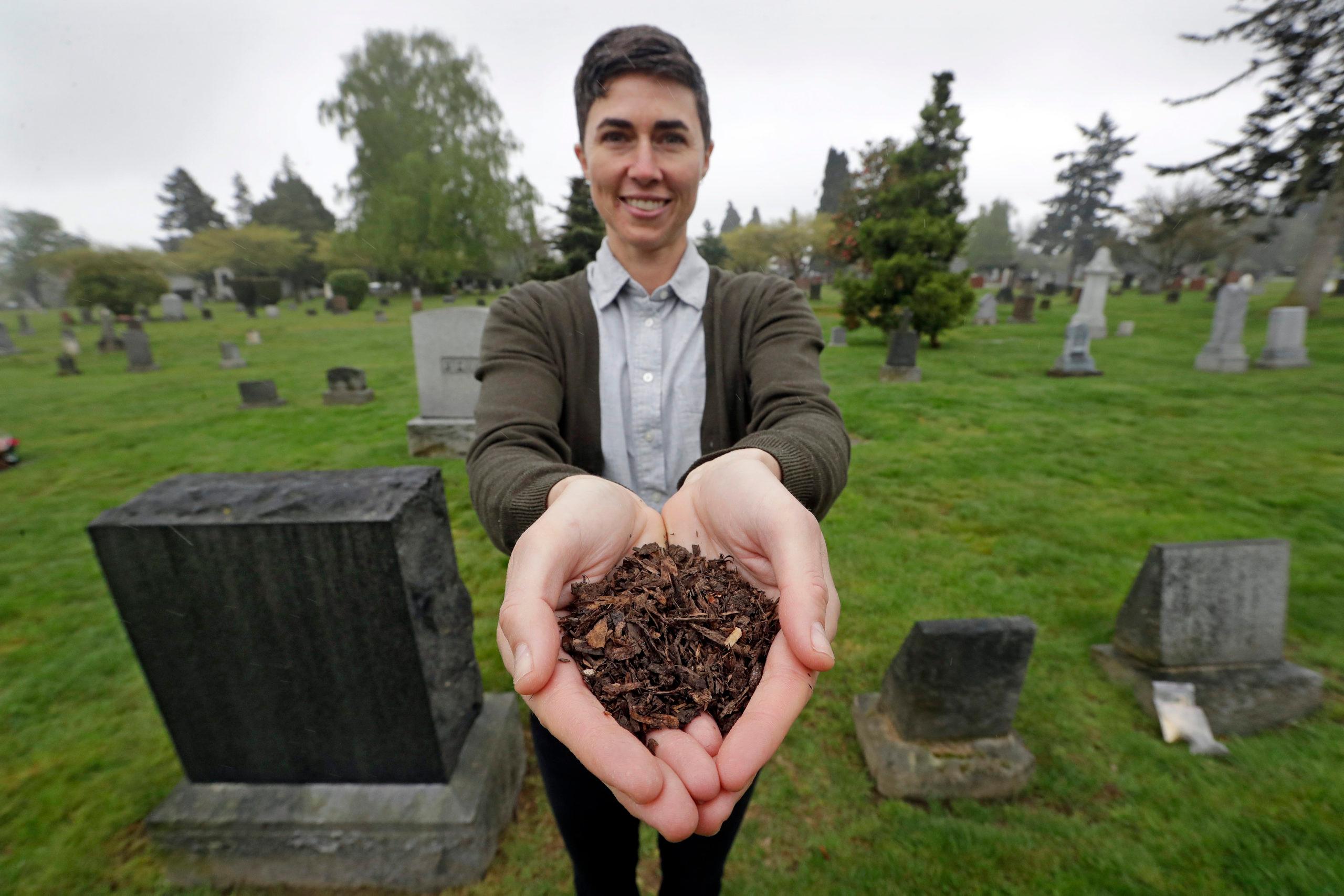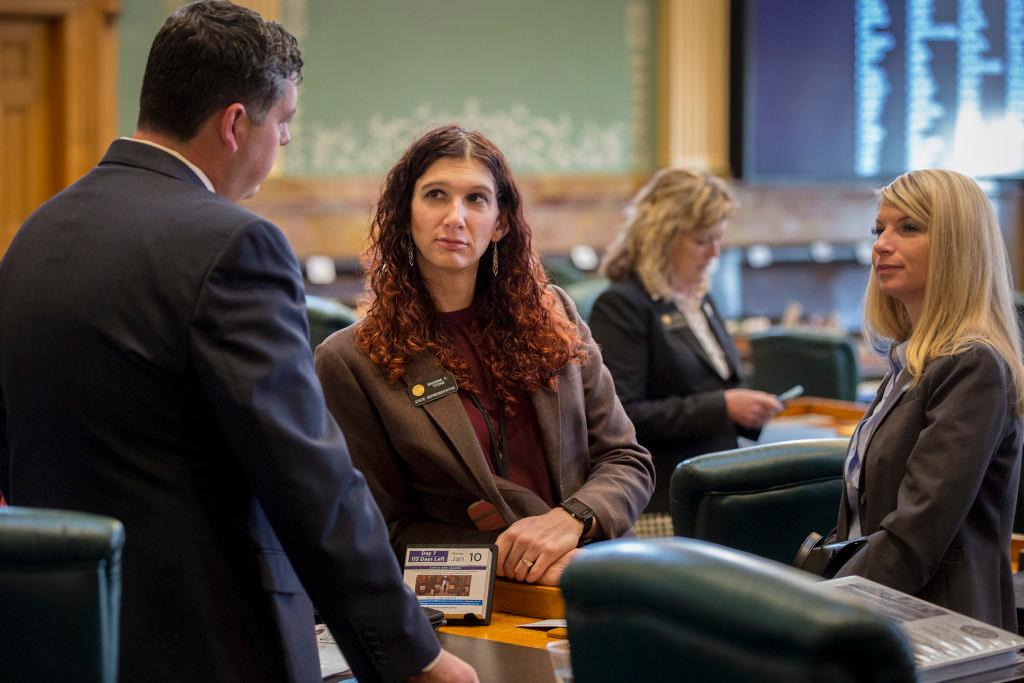
Colorado could be the next state to explicitly allow human composting as an alternative to a conventional burial or cremation. The process turns a body into soil in about 30 days.
Supporters say it’s cheaper than the average burial and better for the environment. Compared to cremation it uses less energy and gives a little back to nurture the Earth.
Democratic Rep. Brianna Titone, who plans to sponsor a bill in the upcoming legislative session, became aware of “natural organic reduction” after Washington state passed a bill to allow it. While Colorado doesn’t ban this method of body disposal, Titone said there’s a gray area and she wants to make the law clear that it’s allowed.
“You can plant a tree or flowers in it,” Titone said of the composed material that’s produced. “You can put it in a pot inside or put it outside. You can spread it out in a forest or your favorite park where you wouldn't even know it was even there, but it was adding nutrients to the soil.”

Seattle-based Recompose has a patent-pending technique that uses wood chips, straw and alfalfa to decompose a human body inside a vessel. Founder Katrina Spade came up with the idea when she was in graduate school for architecture and began to think about her own end of life wishes.
“It’s really a way to take what nature does anyway and all over the world, in forests and meadows and help it happen a little bit faster,” Spade said.
She has tested the process at Washington State University with six donors. The timing seems to be right, between the burgeoning “alternative death care movement” and the environmental movement.
“When you put those things together, you start to think, ‘oh yeah, this is pretty practical. It's actually a pretty logical next step,’” she said.
According to the Cremation Association of North America, 53 percent of Americans chose cremation in 2018. A decade ago that percentage was only 34 percent. Among states, Colorado, along with Washington, has one of the highest cremation rates at more than 71 percent.
Colorado is also home to the nation’s only legal open-air cremation site in Crestone. And the state legislature passed a bill in 2011 that made “chemical methods” an accepted form of body disposition, one of the first to do so.
“Aside from birth, death is literally the only experience that every single one of us will have,” said Jamie Sarche the director of pre-planning at Feldman Mortuary in Denver. Most of their customers opt for a natural burial, which means no embalming, or not using as many chemicals, and a biodegradable casket or no casket. She would like to offer human composting as a service too and hopes discussions at the state capitol spur the larger public conversation around death and end of life.
“We really ought to be talking about it and anything that we refuse to discuss just has way too much power,” Sarche said.
City planner and consultant, Katherine Cornwall, who’s not yet 50, said she hopes it’s something she can explore when the time comes for her to plan her end of life wishes. Greener funerals is a trend more and more Americans seem to be embracing. The country had its first-ever green funeral conference earlier this year.
“I'm hoping that something like this passes because I would definitely put together a funeral plan that would include natural burial of some sort,” Cornwall said.
But human composting won’t appeal to everyone. It would cost several thousand dollars more than cremation, and the soil probably couldn’t be stored in something like an urn for loved ones to keep. Others will always prefer a traditional burial. But advocates say they hope this could be just one more option on the market.








